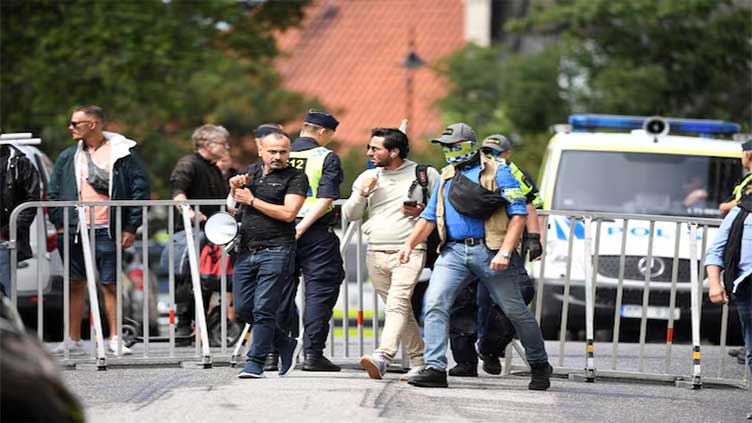Sweden to prosecute two men over Quran burnings

World
The two men committed "offences of agitation against an ethnic or national group" on four occasions
COPENHAGEN (Reuters) – Swedish prosecutors said on Wednesday they would put two men on trial for setting fire to the Quran in a series of incidents last year that prompted outrage in the Muslim world and raised fears of attacks by jihadists.
The two men committed "offences of agitation against an ethnic or national group" on four separate occasions when burning Islam's holy book outside a mosque and in other public places, the Swedish Prosecution Authority said in a statement.
Sweden's domestic security service raised its terrorism alert level as a result of the burnings, while neighbouring Denmark, which also saw a spate of Quran burnings, tightened its legislation to outlaw the practice.
"Both men are prosecuted for having on these four occasions made statements and treated the Quran in a manner intended to express contempt for Muslims because of their faith," Senior Prosecutor Anna Hankkio said in a statement.
Many Muslims view desecrating the Quran, which they see as the literal word of God, as a grave offence.
Evidence against the two men, named as Salwan Momika and Salwan Najem, consisted largely of video recordings, Hankkio said.
Najem denied any wrongdoing, his lawyer, Mark Safaryan, told Reuters on Wednesday.
"The permit granted in connection with the demonstration is covered by my client's intent. His rights are protected by the Swedish constitution," Safaryan said.
The lawyer for Momika did not immediately respond to requests for comment.
Momika, a refugee from Iraq, has said he wanted to protest against the institution of Islam and to ban its holy book.
Sweden's migration agency has said it wanted to deport Momika due to false information on his application for residency but that the order would not be carried out because he was at risk of torture in his home country.
Critics have said Sweden and Denmark, two of the most liberal countries in the world, should treat Quran burnings as a form of free speech protected by law.


